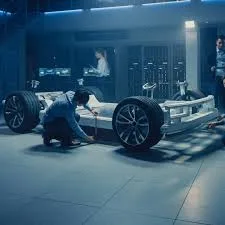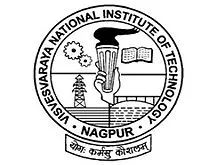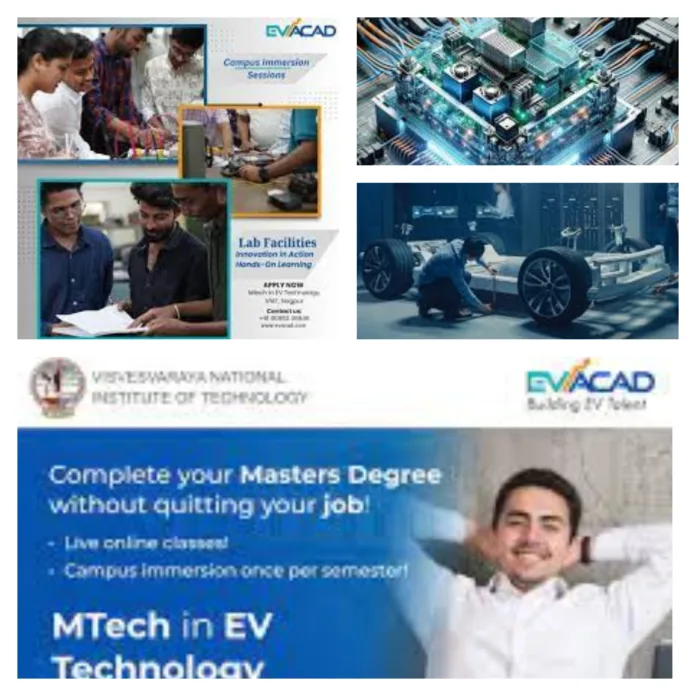VNIT’s New EV Charging Tech: Faster, Smarter, and Game-Changing!
As India accelerates its transition to electric mobility, the need for efficient, fast, and sustainable EV charging solutions has never been greater. In a groundbreaking development, the Visvesvaraya National Institute of Technology (VNIT) is testing a new EV charging technology that could revolutionize the way electric vehicles are powered in the country.
This cutting-edge innovation aims to address some of the biggest challenges in the EV ecosystem, including long charging times, energy efficiency, and infrastructure scalability. Here’s everything you need to know about this exciting development and its potential impact on India’s EV landscape.

Contents
VNIT’s New EV Charging Tech: What to expect?
The new EV charging technology under testing at VNIT is designed to make EV charging faster, more efficient, and more accessible. While specific technical details are still under wraps, early reports suggest that the technology focuses on:
- Ultra-Fast Charging: Reducing charging times significantly, making EVs more convenient for daily use.
- Energy Efficiency: Minimizing energy loss during the charging process to ensure maximum utilization of power.
- Scalability: Creating a system that can be easily integrated into India’s existing power grid and expanded as EV adoption grows.
This innovation is expected to cater to both public charging stations and home charging solutions, making it a versatile option for EV owners.
Why This Technology Matters
India’s EV market is growing at an unprecedented rate, with the government aiming for 30% EV penetration by 2030. However, the lack of robust charging infrastructure remains a significant barrier to widespread adoption.


Here’s how VNIT’s new technology could address these challenges:
1. Faster Charging Times
One of the biggest pain points for EV owners is the time it takes to charge their vehicles. The new technology aims to reduce charging times drastically, making EVs as convenient as refueling a petrol or diesel vehicle.
2. Improved Energy Efficiency
Traditional charging systems often suffer from energy losses, making them less efficient. VNIT’s solution focuses on optimizing energy transfer, ensuring that more power goes directly to the vehicle’s battery.
3. Cost-Effective Infrastructure
By designing a scalable and cost-effective system, this technology could make it easier to set up charging stations across urban and rural areas, bridging the infrastructure gap.
4. Boosting Consumer Confidence
With faster, more reliable charging options, consumers are more likely to consider switching to electric vehicles, accelerating India’s transition to sustainable mobility.
VNIT: A Hub for Innovation
Located in Nagpur, Visvesvaraya National Institute of Technology (VNIT) is one of India’s premier engineering institutions. Known for its focus on research and innovation, VNIT has been at the forefront of developing solutions for real-world challenges.
The institute’s work on EV charging technology is part of its broader commitment to supporting India’s green energy goals. By collaborating with industry leaders and government bodies, VNIT is ensuring that its innovations are not just theoretical but practical and scalable.

The Future of EV Charging in India
The success of VNIT’s new EV charging technology could pave the way for a brighter future for electric mobility in India. Here’s what we can expect:
1. Widespread Adoption of EVs
With faster and more efficient charging options, EVs will become a more attractive option for consumers, leading to higher adoption rates.
2. Growth in Charging Infrastructure
The scalability of this technology could make it easier to set up charging stations in both urban and rural areas, ensuring that EV owners have access to charging facilities wherever they go.
3. Reduced Carbon Footprint
By making EVs more accessible and convenient, this technology will contribute to reducing India’s reliance on fossil fuels and lowering greenhouse gas emissions.
4. Global Recognition
If successful, VNIT’s innovation could position India as a leader in EV charging technology, opening up opportunities for exports and international collaborations.
The new EV charging technology under testing at VNIT is a promising step toward solving some of the biggest challenges in India’s electric mobility journey. With its focus on speed, efficiency, and scalability, this innovation has the potential to transform the EV ecosystem and make electric vehicles a viable option for millions of Indians.
As we await further updates on this groundbreaking project, one thing is clear: the future of EV charging in India is bright, and VNIT is leading the charge.


